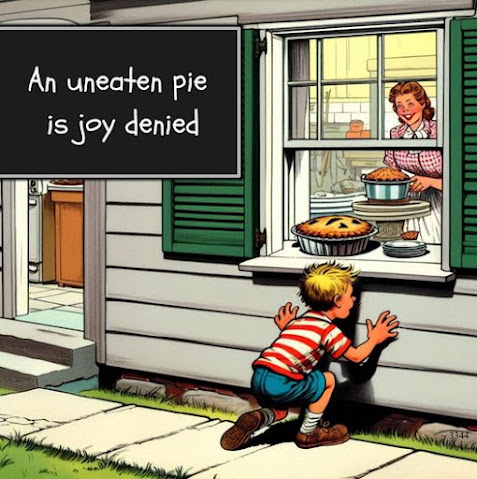Socrates: Tell me, dear friend, of Theseus' ships, If parts replaced, does identity slip?
Achilles: If every plank and sail we renew, Are there many ships, or just one true?
Socrates: Consider now our human frame, Cells change, yet we remain the same?
Achilles: Our bodies shift, our minds evolve, Yet in this flux, does self dissolve?
Socrates: If ship and self both undergo, A constant change, what does this show?
Achilles: Perhaps no soul distinct and pure, But mind and body intertwined, for sure.
Socrates: In every change, our essence blends, No dual realms, but one that bends.
Achilles: So mind and body, not apart, But one continuum from the start.
Socrates: Indeed, my friend, in unity, We find our true identity.
AI can present arguments in more engaging ways. This example might not be to everyone's aesthetic. AI has the ability to custom fit information to our desires of the moment. The OP fits my aesthetic this morning.
Just as AI can tailor information to fit individual preferences, the Ship of Theseus paradox explores how identity can be maintained despite changes. Both concepts challenge the idea of a fixed, unchanging essence. In the case of AI, it adapts to user preferences, showing that identity and functionality can be fluid and responsive.
The Ship of Theseus paradox questions whether an object remains the same when all its parts are replaced. This parallels the argument against dualism, which posits that the mind and body are not separate entities but are interconnected and continuously evolving. Similarly, AI integrates various inputs and adapts its responses, demonstrating a unified system rather than separate, static components.
In essence, both AI's adaptability and the Ship of Theseus paradox highlight the fluidity of identity and the interconnectedness of components. They challenge the notion of a fixed, unchanging essence, whether it's in the context of human identity or the presentation of information. This perspective supports a more holistic view of existence, where mind, body, and information are all part of a dynamic, integrated whole.
Or more tritely: The ship of Theseus is more than the sum of its parts but nothing without all its parts.






